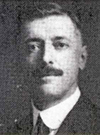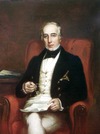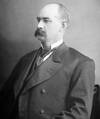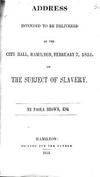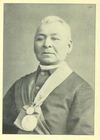a work of worship and service that would meet with fierce opposition from many clergy and laity for some years but that would be rewarded by wide and enthusiastic commendation shortly before his death
Upper Canadian Methodists as Yankees in disguise and sought to bring them fully into the Wesleyan orbit. He was strongly critical of their independent stand on the clergy reserves and on political change
waves from the French revolution were reaching those distant islands, Allain refused to take the oath to the new Civil Constitution of the Clergy, as did his young colleague François
the Montreal Catholic schools. Calling for free and compulsory education, he directly opposed the Montreal clergy, whom he accused of proscribing those wanting to discuss educational concerns. He
Strachan for publicly opposing government policy. Arthur also disagreed with Strachan’s efforts to secure all the funds arising from the sale of the clergy reserves for the Church of England, but he himself
of ecclesiastics, having deplored the multiplicity and very uneven quality of the theology courses at Montreal and the lack of theological knowledge among the Canadian clergy. According to him, the
set out his opposition to separate schools and remedial action. “It strikes me forcibly that when the clergy of any sect undertakes as a body to secure special legislation for their own advantage they
travelled through the province supervising the clergy and schoolmasters. His “active and valuable superintendence” was appreciated by a great many people. Bishop Inglis, who in 1826 made the first Anglican
exclusive Anglican claims to the clergy reserves, Blackwood made public a letter Strachan had written to him in 1802 enquiring about the position of minister to the Scotch Presbyterian congregation. In 1836
education in the training of the clergy, Bland reminded his student audience that their vocation “is not exclusively a human and a prudential one. It bears a higher seal and carries with it a grander
contribution to the coming of French Sulpicians to Canada, which had been his predecessor’s dream. The persecutions suffered by the clergy during the French revolution had scattered them widely, in
principal assistant. As chairman of the committee which ran the Newfoundland Church Society, Bridge worked hard collecting funds. These were distributed among the clergy on the island according to need
financial difficulties obliged him to sell it a few years later.
Léger Brousseau had made himself supplier to the clergy; official printer for two dioceses
blacks settle in or near Oro Township. The second petition followed shortly and asked for approval to form a company to purchase a block of clergy reserve land on the Grand River where the petitioners
prince’s departure the affair subsided, but it showed how tenuous was the footing of the Catholic clergy – in Newfoundland.
Nevertheless, Burke’s
villages, as well as with the Roman Catholic clergy, soon led to improvement and by 1831 his principal competitors had given up. Three years later, after petty traders had settled on Lake Timagami, Simpson
Vondenvelden to the prejudices of the Canadians or opposition from the merchants, seigneurs, and clergy. At bottom, “the French Canadians are like the rest of the world, fond of getting money with as
Quebec was confirmation that the clergy who had travelled in Europe wanted their new churches to have well designed iconographical compositions embellished with decorative motifs. Unlike his rivals in the
the rear township of South Crosby to erect a mill there. The brothers agreed and in April 1820 Benjamin secured a lease to lot 17, concession 8, a clergy reserve lot with a suitable mill-seat
Huron College Arch. (London, Ont.), Clergy list, Diocese of Huron . . . , June 30th, 1887. Minn. Hist. Soc. (St Paul), G. L. Nute, “North West Mission papers.” NA, RG 10



